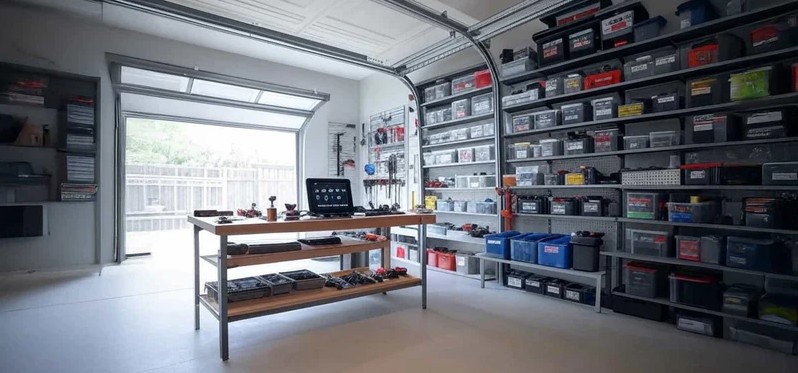Businesses are looking for ways to save energy. Solar panels are popular but sometimes limited by daytime production. Commercial solar battery systems store energy for later use. This helps businesses run during peak demand or outages. Choosing the right system requires careful research and planning. Sometimes one wrong choice can reduce efficiency and cost savings. Therefore understanding capacity power output and chemistry is critical. A well-selected battery system strengthens energy reliability for any company.
Understanding Capacity and Power Output
Capacity measures how much energy a battery can store. Power output determines how much energy can be used at once. Businesses need both to match daily electricity demands. A system with high capacity but low output may underperform. Sometimes one decision about size affects the entire energy plan. So understanding load requirements ensures the battery meets business needs. Experts often perform calculations based on peak hours and equipment use. Correct sizing prevents shortages and maximizes return on investment for companies.
Comparing Battery Chemistry
Batteries use different chemistries like lithium-ion or lead-acid. Lithium-ion is popular for long life and efficiency. Lead-acid is less expensive but heavier and shorter-lived. Each type has unique charging and temperature requirements. Sometimes one chemistry suits a business better than another. So reviewing features and limitations is essential before purchase. Chemistry also affects safety warranties and maintenance schedules. Choosing the right type protects investment and ensures reliable performance. Knowledge of chemistry guides proper installation and long-term use.
Lifespan and Warranty Considerations
Battery lifespan varies depending on chemistry and usage. Lithium-ion batteries often last ten to fifteen years. Lead-acid may last five to seven years with proper care. Warranties cover performance issues and unexpected failures. Sometimes one battery with a strong warranty avoids costly replacements. So businesses should compare manufacturer guarantees and service terms. Longer warranties indicate confidence in quality and durability. Planning for replacement helps maintain energy consistency over time. Understanding lifespan reduces unexpected downtime and protects operations. Selection of the commercial solar battery storage systems is essential here.
Integration with Existing Solar
Batteries must work seamlessly with existing solar panels. Compatibility ensures stored energy is used efficiently. Some systems require specific inverters or controllers. Proper integration avoids loss of capacity and reduces technical problems. Sometimes one installation mistake can affect the whole energy network. So coordination between provider and business is crucial. Skilled installers optimize system layout for maximum performance. Integrated systems improve cost savings and energy independence. Successful integration strengthens both daily and emergency energy reliability.
Questions to Ask Providers
Businesses should ask providers about capacity ratings. They should also inquire about maximum output and battery chemistry. Installation support and monitoring options are important too. Providers must explain warranties and maintenance requirements clearly. Sometimes one well-asked question prevents future operational issues. So businesses gain confidence by knowing what to expect. Customer reviews and past project references help verify credibility. Asking detailed questions ensures the selected system meets energy goals effectively. Providers should guide choices with transparency and expertise.
Conclusion
Selecting the right commercial solar battery system is complex. Capacity power output chemistry lifespan and warranty all matter. Integration with existing solar panels ensures smooth operation. Asking detailed questions to providers prevents surprises and errors. Sometimes one correct choice improves efficiency and saves money significantly. A well-chosen battery system increases reliability and energy independence. Therefore research planning and professional guidance create a successful long-term energy solution for businesses.







